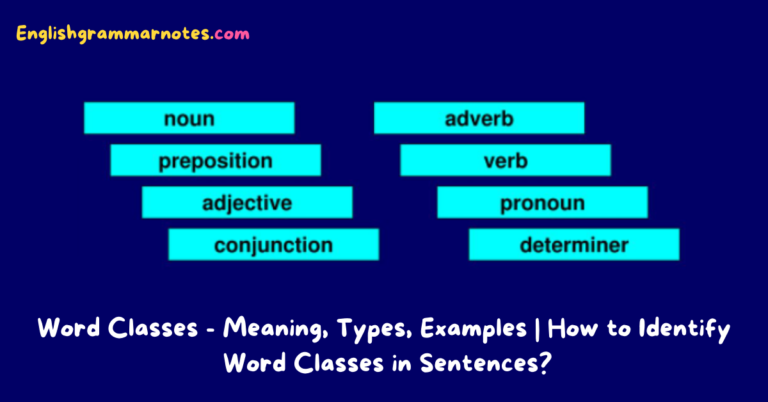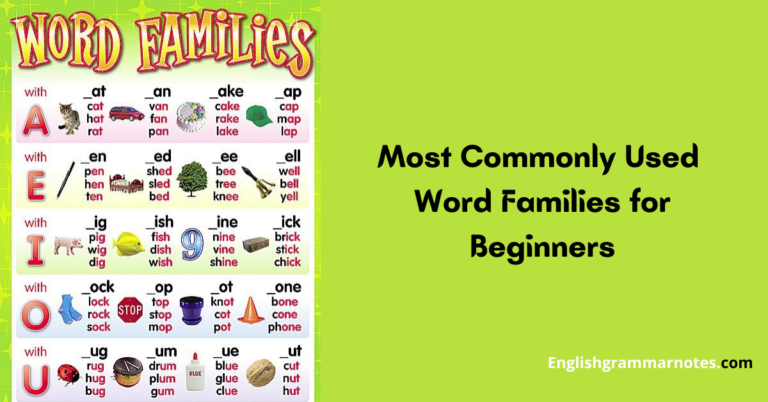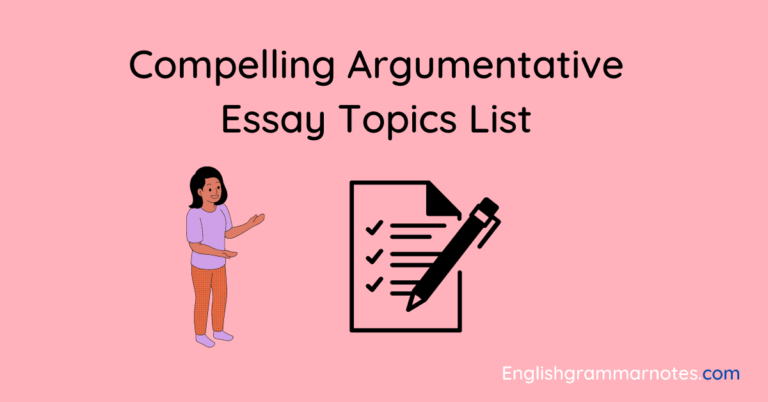Word Classes – Meaning, Types, Examples | How to Identify Word Classes in Sentences?
Words are the building blocks in any sentence. They just don’t ‘mean’ something, they ‘do’ something in every sentence. Hence words are grouped into word classes based on what they do. A word class is a group of words that have certain common features. The term “word class” is analogous to the more conventional term, “part of speech.” It is also variously named grammatical category, lexical category, and syntactic category. Types of Word Classes Open and Closed Word Classes Open Word Classes Closed Word Classes How to identify the word classes in a sentence? How to classify a word class? What is the difference between a word class and part of speech? Types of Word Classes Word classes can be divided into two families: Lexical Classes: Also known as open classes and form classes. The lexical classes include nouns, verbs, adjectives, and adverbs. Function Classes: Also known as closed classes and structure classes. Includes: pronouns, determiners, conjunctions, prepositions, and interjections. Open and Closed Word Classes As previously mentioned some word classes are open, that is, the class can be expanded with the addition of new words. Take the example of the class of nouns, it is potentially infinite as the …


